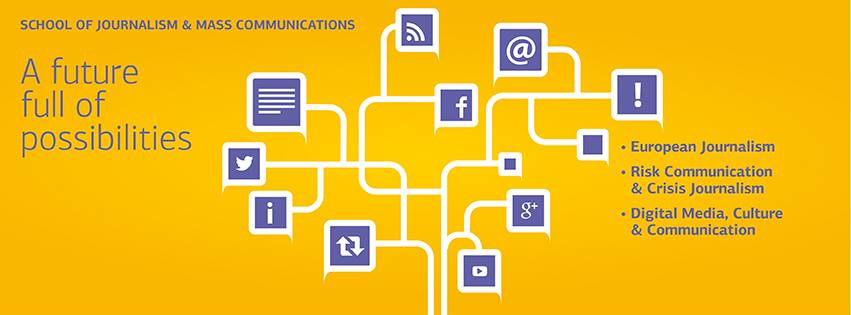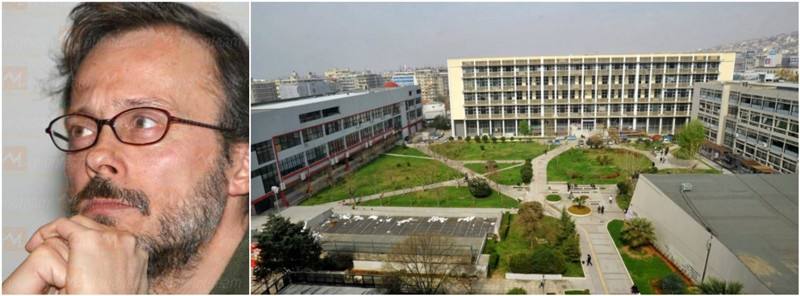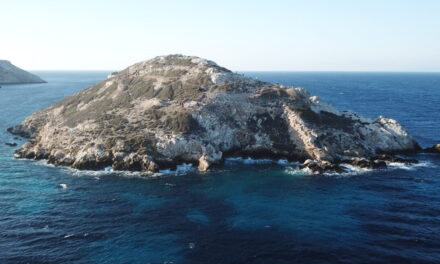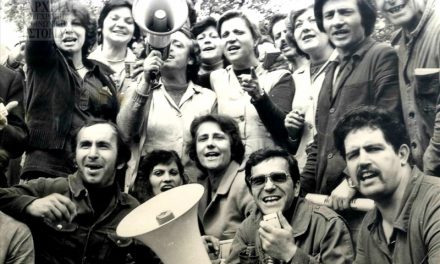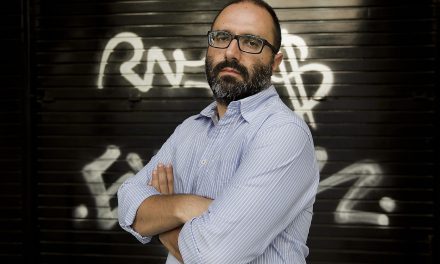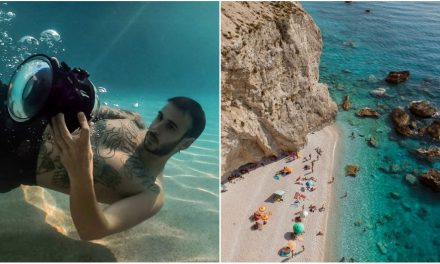Gregory Paschalidis is Professor of Cultural Studies and Director of the English-taught Master of Arts in Digital Media, Communication and Journalism at the Aristotle University of Thessaloniki. Τhe School of Journalism and Mass Communications of Aristotle University of Thessaloniki, established in 1991 offers a full-time, four-year long BA degree program as well as a Master’s programme in Journalism and in Mass Communications. In 2015 the Univesristy established the English language Master’s program in the areas of Journalism and Communications, the first of its kind among Greek public Universities. The MA offers three pathways: ‘Digital Media, Culture and Communication’; ‘European Journalism’ and ‘Risk Communication and Crisis Journalism’.
Professor Paschalidis spoke to Greek News Agenda* on the course’s structure, aims, professional and research prospects, on why study journalism in Greece and specifically in Thessaloniki, the dynamic created by the course’s international students and finally, he offers his take on how social media have shaped nation branding and cultural policy.
What was the idea behind establishing an English-taught MA in Digital Media, Communication and Journalism in Thessaloniki, Greece? Why would a foreign student choose to study media and journalism in Greece?
In the late 1990s, our School organised an undergraduate English-taught course package for the benefit of the incoming Erasmus students. This proved hugely successful, and, before long, we had 25-30 students from all over Europe studying at our School every year. Many of them expressed their wish to continue their studies at our School on a graduate level and this is what originally gave us the idea of organizing an English-taught MA. In 2011, when the law regarding higher education allowed Greek Universities to set up graduate programs in the English language, we decided to go ahead. During the planning stage we investigated thoroughly and idenitified which graduate specializations would give us a edge in the highly competitive and diversified field of graduate studies across Europe. Subsequently, extra care was given to preparing all aspects of the MA programme (structure, course contents, website, student services, etc) taking into account the best international practices. The success of our MA program in attracting high-calibre students from abroad was largely due to those two factors: offering innovative graduate specializations and having an up-to-date model of graduate studies and services that makes sense and can be appreciated by foreign students. According to the regular student evaluations, another crucial factor of the program’s appeal is the high cost/quality ratio, in other words, a highly satisfactory academic experience for a relatively very low cost. Last but not least, Thessaloniki as a vibrant, low-cost, youth-friendly city certainly has its own significant contribution to our success so far!
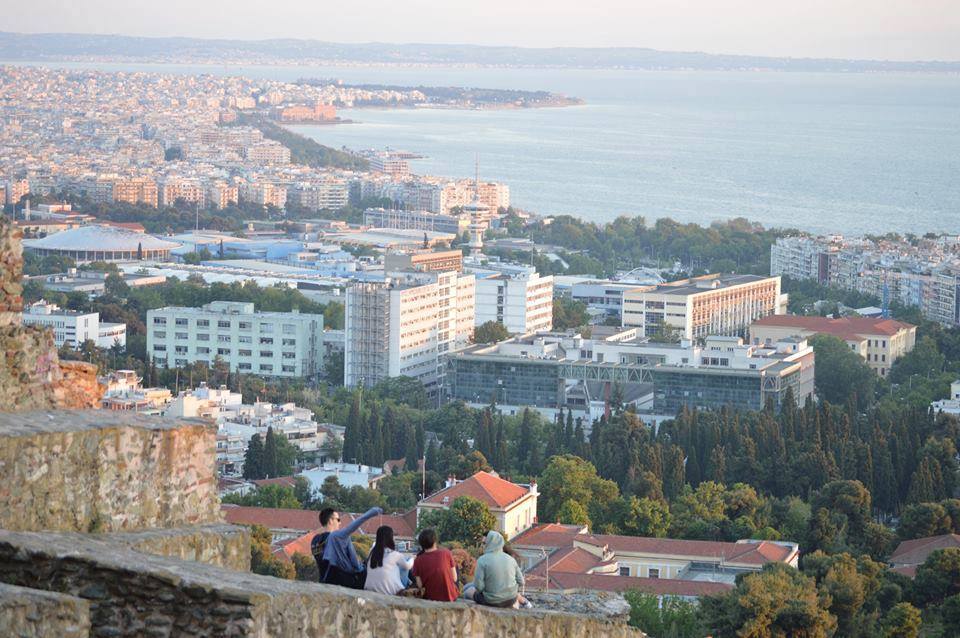
What has been your experience after three years since the establishment of the MA programme? Which countries do foreign students come from? Where are your graduates employed?
Perhaps the most intriguing experience I had in these three years was the way the Greek students (there are quite a few) are inflenced by their interaction with the foreign students, by the fact that they participate in an internationally oriented programme. They have a discipline and a work ethic that is quite rare to see amongst Greek graduate students, and they quickly develop a visibly more dialogic and cosmopolitan attitude. They are literally transformed! As regards our student intake, most of the applicants come from non-EU countries, mainly USA, Turkey, Russia, India and China. Most of the EU applicants, on the other hand, come from N. European countries. Most of our graduates are employed in the fields of journalism, digital communications/marketing, non-profit organizations and NGOs. Many, however, are already employed and take a year off to upgrade their skills and competencies.

The Aristotle University of Thessaloniki is a leading university in South Europe. Has the School of Journalism and Mass Communications established parternships with other universities in the region and / or throughout Europe and internationally?
Our School has placed a priority in developing international partnerships. We have Erasmus contracts with a wide range of Jourmalism and/or Communications Shools abroad, and are active in the European Journalism Teaching Association. The presence of a sizeable cohort of foreign students – both on undergraduate and postgraduate level – the regular presence of Visiting Professors from abroad, as well as the international Summer School in Global Journalism we organize with the cooperation Deutsche Welle, provides us with live, active bridges with the international academic and professional community.
What are the areas of research the School of Journalism and Mass Communications focuses on?
Just as any other Journalism/Communications School in the world, our School is highly multi-disciplinary and that reflects not only on our teaching programmes, but also on the variety of our research interests and projects. Amongst them special mention should be made to data journalism, journalistic cultures, fake news, media/cultural consumption, popular television, narrative journalism, photojournalism, documentary, advertising history, health communication, science journalism, public campaigns, peace journalism etc.

One of the three pathways offered in the MA is “Digital Media, Culture and Communication” and your research interests include cultural and visual studies and cultural policy. Do you believe that the predominance of social/digital media has made it more difficult to implement concise ‘nation branding’ and cultural policies?
There’s a lot to be said about the impact of social/digital media on nation branding and cultural policy, but I will limit myself to just two recent developments: Most nation branding campaings, nowdays, involve some sort of crowdsourcing and/or web-facilitated public vote! What used to be the marketing specialists’ domain, has largely moved into the public sphere. At the same time, there is no form or level of cultural policy that has not been fundamentally upset by the radical changes in the areas of cultural creativity, distribution, communication and participation instigated by the rise of social/digital media. In an era when rearticulation of the relationhsip between society/culture/communication, cultural policy-making needs to reivent itself.
See also:
- “New Trends in Media and Journalism: Disinformation, Verification of News and Constructive Journalism in a Changing World” is the theme of the second edition of the International Media Summer Academy, organised by the School of Journalism and Mass Communications of Aristotle University in Thessaloniki (13-20 July 2018)
*Interview by Ioulia Livaditi
